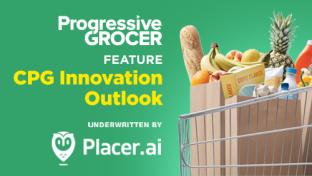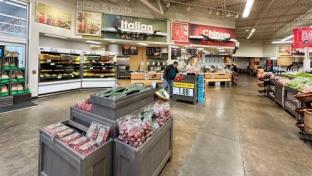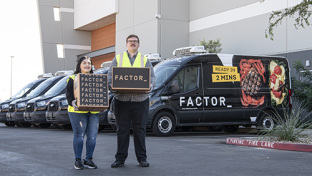Progressive Grocer Honors 25 Outstanding Independents
It’s often the way of things that the big guys in the industry hog much of the media attention — think of those two grocery behemoths whose impending merger set off a veritable feeding frenzy among members of the press — but independents also deserve their time in the spotlight. While they may not be able to compete with larger chains in terms of scale, many have perfected the fine art of making themselves beloved and indispensable members of their respective communities, and this approach often helps to boost their bottom lines.
As an example of this, look no further than Byron’s and Cambridge Village Markets, in upstate New York, which, when faced with supply chain woes that bedeviled even the big-box stores, found unconventional sources to keep their shelves stocked, such as restaurant suppliers that would have otherwise been unable to move product during the height of the pandemic. The stores, operated by Byron Peregrim, also kept customers in the loop daily via social media on stock availability. According to Peregrim, this in itself lifted sales more than 35% over the prior year, and two years on, they’re still up 20%-25% over previous years. He proudly adds that throughout it all, the stores never raised their margins, instead growing profits via “hard work and added sales.” These added profits subsequently enabled the stores to give back even more to their local communities, completing the circle of trust between the stores and their shoppers.
In another case, when a Wegmans Food Market opened a few miles away from Harvest Market, in Hockessin, Del., in spite of predictions from a consultant of plunging sales, the single-store grocer closed out the year up 11%. The indie attributes this win to “a staff focused on taking care of customers from the moment they walk through the door.”
Independents’ gains aren’t just monetary, however. Gwen Christon’s store, Isom IGA, in Isom, Ky., may have been destroyed by a devastating flood, but in the aftermath, she and her business were inundated with donations and offers of help to rebuild the supermarket, which had long been a welcoming community hub and will be again.
That’s the true differentiating factor of independent grocers — their ability to bring people together through food in unique ways that reflect their local areas. Despite their many differences, that quality is one shared by each of Progressive Grocer’s 25 2023 Outstanding Independents. Read on to find out more.
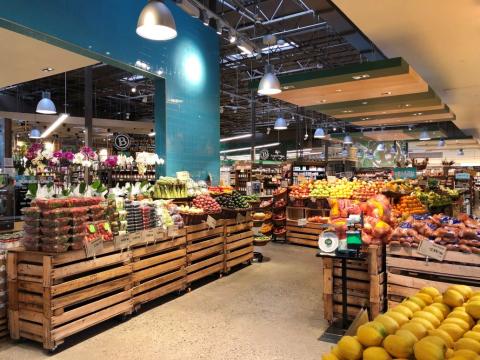
Barons Market
Headquarters: San Diego
Number of Stores: 9
Local family-owned independent grocer Barons Market has always thought of its employees as part of its extended family, so in a year when labor shortages were plaguing the grocery and other industries, the food retailer put employees at the forefront of its operations.
Barons’ LEAD program not only focuses on teaching employees the ins and outs of grocery management, but also helps them find the passion in what they do. In 2022, the expansion of the program, which now has more associates participating than ever, resulted in the creation of 10 new assistant manager positions across Barons’ nine stores.
“This all stems from our core value that our employees are our No. 1 asset,” notes Barons in its Outstanding Independents submission. “The key is our culture. We’re so proud that we’ve built a company culture that encourages creativity, passion and engagement among our team. We’ve created a work environment where employees feel excited to come to work every day. We want our employees to truly love what they do, and if they don’t, we beg them to find another job.”
The company points out that while it’s always had such employee benefits as health insurance, an employee discount, bonuses and matching 401(k) contributions, this past year it introduced dental insurance for all full-time employees, increased the employee discount from 10% to 15%, and added vacation time for all employees, no matter their position.
“Barons Market will always be an employee-focused company,” the grocer asserts in its submission. “We believe that when our employees are happy, our customers are happy, and this will have a ripple effect among the communities that we are in.”
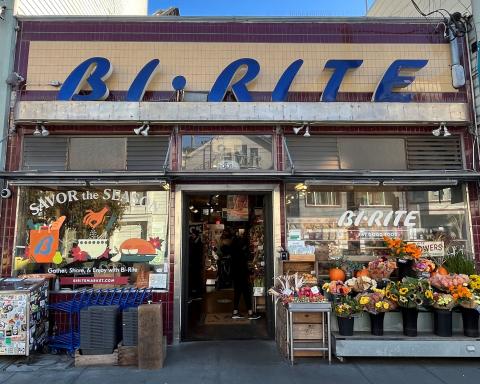
Bi-Rite Family of Businesses
Headquarters: San Francisco
Number of Stores: 2
Amid marking its 25th year under the leadership of second-generation owner Sam Mogannam and looking to open its third market in San Francisco, Bi-Rite Family of Businesses is touting its central role as an incubator. From being an early collaborator with technology partners such as Instacart and an AI-based inventory management startup, to helping local restaurants launch and scale their CPG products, the indie has offered its neighborhood stores, staff and data as resources in service to its mission of Creating Community Through Food. Through such efforts, Bi-Rite believes that it can help other independent retailers, local entrepreneurs and consumers have a better experience as part of its responsibility to create a better food system.
Bi-Rite’s most important incubator activities, however, are the ones that happen behind the scenes in collaboration with its community partners. An example of this is nonprofit cooking school 18 Reasons’ Nourishing Pregnancy Program.
In early 2021, Bi-Rite wanted to develop a small food-box program to increase food security for local families. At the same time, 18 Reasons was designing its Nourishing Pregnancy program, working within the BIPOC community to boost food access, health and well-being. The program is a free four-month pregnancy and postpartum cohort series featuring online cooking classes, weekly grocery deliveries, and support classes taught through a cultural lens by Black- and Latinx-identifying facilitators.
Bi-Rite and 18 Reasons serendipitously joined forces to launch the first cohort in June 2021, with 22 participants. The grocer’s role in the program included offering recipe consultation and grocery guidance to the Nourishing Pregnancy program director, food sourcing and procurement, providing space for dry good storage and weekly food-box packing, and identifying a delivery/logistics partner to ensure that food boxes were delivered directly to participants, thereby helping to eliminate common barriers to accessing healthy food. Bi-Rite also held a point-of-sale fundraiser for the program.
Last year, Nourishing Pregnancy hosted three cohorts and served 96 participants. Despite inflation and supply chain issues that challenged the entire industry, Bi-Rite’s team continued to source ingredients for the weekly food boxes and evolve operations to increase efficiency.
The company’s work in the past year has helped create capacity within the program for 18 Reasons to further expand it in 2023. As the program grows to accommodate four cohorts of 60 participants each, the physical space needed for the weekly grocery boxes has exceeded Bi-Rite’s footprint, so Nourishing Pregnancy will team with a new wholesale grocery partner to handle most of the weekly grocery-box sourcing and packing. This move also allows the Nourishing Pregnancy staff to allocate more time to programming, further enhancing the program’s impact.
Rather than expressing sadness at losing a trusted collaborator, Bi-Rite notes that “there’s no greater reward for its incubator efforts than having a community partner outgrow them and be able to serve even more people within the community.”

BriarPatch Food Co-op
Headquarters: Grass Valley, Calif.
Number of Stores: 1
Things have been busy at BriarPatch Food Co-op. Long considered by its Northern California community as a trusted source for high-quality, fairly produced natural and organic local products and food information, the cooperative has striven to keep its quarterly magazine, The Vine, relevant by providing food education and tips on how to prepare and access healthy food, along with stories about the people and places tied to the origins of sustainable food.
The magazine, featuring all original content, is produced entirely in-house by a group within the store’s marketing team, despite the fact that creating a “scratch” magazine requires significant resources for an independent grocery store. In 2021, faced with the dramatic increase in the cost of paper and the store’s commitment to improve its carbon footprint, BriarPatch opted out all 5,000 of its print subscribers and invited them to opt back in via email. Now only 250 people receive The Vine via mail, and costs have halved. This gave the team the opportunity to improve the magazine’s digital version: QR codes link print readers to additional content, and the digital version is entirely reformatted on a platform that caters to mobile and tablet users.
Additionally, since BriarPatch’s volunteer program, PatchWorks, launched in 2020, it has more than doubled the number of volunteer hours donated in the local community, making a tangible difference to nonprofits struggling in the pandemic’s wake.
Currently, 16 Nonprofit Neighbor organizations benefit from the program, among them local food banks, environmental organizations, a farmers’ market, a homeless shelter, and an organization dedicated to diversity, equity and inclusion. Those who volunteer at approved nonprofits receive shopping discounts in return for their good deeds, while groups enrolled in the program submit volunteer hours to BriarPatch and pledge to promote PatchWorks through their marketing channels. This cross-networking gets the word out and connects people in the community like never before.
Collectively, volunteers have worked more than 20,000 hours since 2020 — with their labor valued at $600,000-plus — and earned more than $40,000 in shopping discounts. What’s more, at least three volunteers have been hired by the nonprofits for which they volunteered.
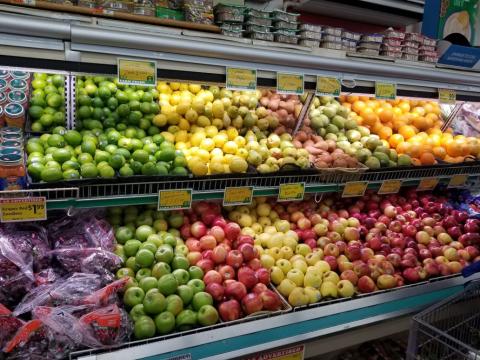
Byron’s and Cambridge Village Markets
Headquarters: Schuylerville, N.Y.
Number of Stores: 2
During the height of COVID, which exacerbated lingering supply chain issues, Byron’s and Cambridge Village Markets were able to increase their business dramatically by striving to find sources to restock their shelves at a time “when the big-box stores struggled,” in the words of President Byron Peregrim.
“For instance,” explains Peregrim in his Outstanding Independents submission, “we would order any type of bathroom tissue available, and if it was in 6-packs or higher, we would open the packages and make up 4-packs that we would sell to our customers, with a limit of one per day, so all had bathroom tissue. We were fortunate to only be out of stock a day here and there until our next truck came in.” He adds that his stores were also able to get many deals from restaurant suppliers that needed to move out product, enabling the independent “to pass along a lot of great deals to our customers.”
Every day, shoppers were kept informed via social media of the status of the stores’ shelf stock. According to Peregrim, “This in itself helped increase our stores’ [sales] 35%-plus over last year, and two years later, they’re still up 20%-25% over previous years. I have no doubt that our increase is due to finding product availability, no matter who the manufacturer might be; our staff, for working through unknown times, when they could have easily opted out; and gaining trust and respect from our everyday regular customers and the hundreds, or maybe even thousands, of new customers we gained because of our honesty.”
Not once did the stores increase their margins, instead opting to grow their profits “through hard work and added sales.” Through these added profits, they were able to give back even more to their local communities and raise employee wages various times, instead of just during their reviews. They were also able to complete several capital projects, which gave back money to their local community job force.
“COVID, obviously not being a good thing, really changed our business model and gained our customers’ trust and appreciation,” notes Peregrim, adding that his stores continue to find sources for products that are still hard to find, giving their customers the best choice possible.
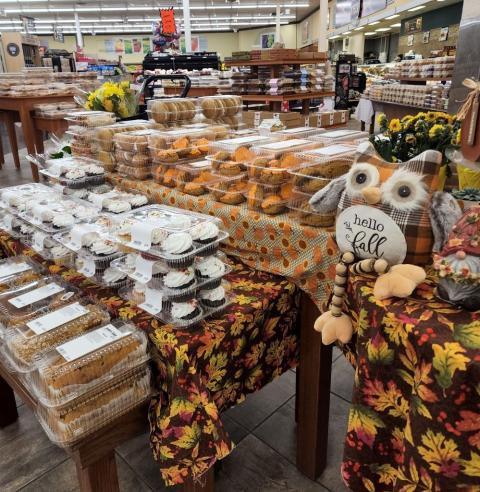
Charley Family Shop ’N Save
Headquarters: Greensburg, Pa.
Number of Stores: 3
One of the major features that sets Charley Family Shop ’N Save apart from the rest of the grocery stores in the area is its people, whom co-owner Tom Charley characterizes as the “absolute best … in the world.” Beyond that, however, the indie follows some unique practices that differentiate it from every other competitor around, regardless of size.
In the area of community support, for instance, during every holiday when the stores are closed – Thanksgiving, Christmas and Easter – the grocer provides free food in front of its locations. “We set up about 20 key items outside of our stores for customers to take as needed,” explains Charley in his Outstanding Independents submission. “We understand that people forget an item or two [and] not being open can be tough [for them], so we set that up outside. There is no requirement to pay a penny for anything you take. We have a sign next to the free product that describes what nonprofit we are supporting, with a QR code customers can scan to donate directly to nonprofits we think are great assets for our region.”
Another unique thing that Charley Family Shop ’N Save does is communicate regularly with its community through its social media accounts in a way “that would be impossible for a large company to match,” asserts Charley. The company discusses the professional accomplishments of individuals, posts pictures, and bonds with the community over various momentous life events. As well as sharing the good, however, the company doesn’t shy away from discuss challenging situations directly with the community. “We’ve had Facebook Live videos talking about specific challenges in the supply chain, categories we are having a hard time stocking and what the future looks like for those items,” says Charley, who adds that the social media channels also feature giveaways and product-sampling videos.
What’s more, all of these videos come from Charley himself. “These aren’t produced by a marketing firm; they are very grass-roots, and it shows,” he notes. “There is no filter between [my] mouth and what is going on in the industry. It fosters trust between our company and the community.”
This consistent activity on social media is reinforced by the daily presence of Charley and his brother Mike in the stores, where they regularly interact with customers.
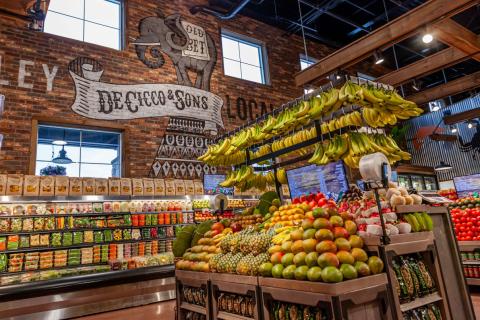
DeCicco & Sons
Headquarters: Pelham, N.Y.
Nunber of Stores: 10
What started nearly 50 years ago as a family-run storefront in the New York City borough of The Bronx has transformed into a multigenerational food retail destination in New York’s Westchester County. DeCicco & Sons now has 10 locations and prides itself on exemplary customer service, world-class food selections ranging from specialty goods to freshly prepared meals, and a commitment to the communities it serves.
Customers praise the retailer for its vast selection of fresh produce, its well-appointed cheese and deli counters, and imported Italian goods, as well as for its friendly associates and owners who frequently take the time to walk the aisles and speak with customers. The grocer has won accolades for its Italian bakery, beer selection and catering division, but today it’s focused on much more than just the food and beverages that it stocks.
As the company expands, renovates existing sites and opens new locations, it has consistently been at the forefront of innovative, environmentally friendly building solutions. Energy and water efficiency are top priorities for the company, and during the construction process, DeCicco & Sons uses post-consumer glass, as well as reclaimed brick and wood, along with employing other means to minimize water usage and offset its carbon footprint. Additionally, the company is one of the first in the country to test and use geothermal wells combined with natural refrigerant to reduce electricity use and cut emissions.
DeCicco & Sons also has three large solar panel arrays at select locations, with two more in the pipeline. The grocer is proud to extend its commitment to quality beyond its food and services, and into the realm of renewable and sustainable energy.
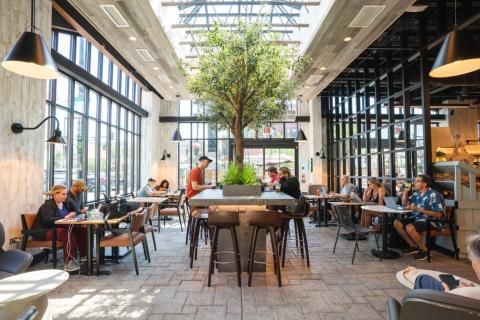
Dom’s Kitchen & Market
Headquarters: Chicago
Number of Stores: 2
After making its Windy City debut in the summer of 2021, Dom’s Kitchen & Market has made a splash as an omnichannel food emporium that focuses on food and community. The grocer has rapidly expanded during its 16 months in business, launching online shopping and an app, and also opening a much larger second location in November of last year. The new store, in Chicago’s Old Town neighborhood, features updated grocery technology like digital menu boards, electronic shelf labels, self-checkout and self-order kiosks.
Dom’s is spearheaded by Chicago grocery veterans Don Fitzgerald, Bob Mariano and Jay Owen, whose team is committed to highlighting local products and entrepreneurs. The customer-favorite bakery stocks baked goods from some of the most popular bakeries in Chicago, and the stores’ category managers seek out emerging local brands to help curate a uniquely local and global experience for shoppers.
Dom’s executive chef creates a menu of freshly prepared, globally inspired foods, including Roman-style pizza, sushi and poké bowls, as well as Italian main courses that complement the retailer’s signature sandwiches, salads and burgers. The company also partners with chefs across Chicago to bring unique experiences to its customers, and incorporates local ingredients into its menu items.
In addition to its commitment to great food and supporting local purveyors, Dom’s gives back to the communities it serves by regularly donating to and volunteering at the Greater Chicago Food Depository and Nourishing Hope. As it aims to open 15 new stores by 2025, the grocer also plans to create thousands of new jobs – in addition to the 250 jobs it created last year.
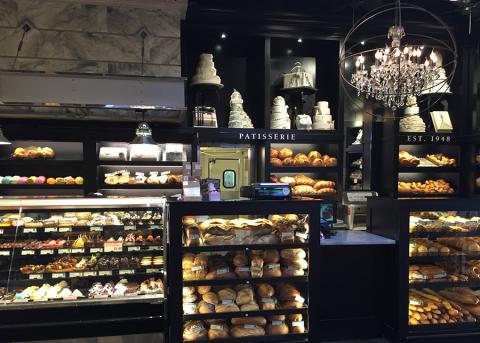
Dorothy Lane Market
Headquarters: Dayton, Ohio
Number of Stores: 3
As the Southwest Ohio specialty grocer enters its 75th year in business, Dorothy Lane Market (DLM) remains focused on its endless quest to innovate, according to CEO Norman Mayne. The executive believes that DLM’s successes wouldn’t be possible without the people who have been part of the journey, including his entire family, the stores’ associates, its vendors and especially its community of customers.
“Together, we’ve not only served up great food traditions, but we’ve had a lot of fun doing it along the way,” Mayne says. “We’ve always tried to create faster than the competition can steal. As a result, we try things that others won’t, and that leads to not only unique promotions and business practices, but items like the Killer Brownie and our killer strategy to develop signature favorites in every aisle and department.”
Mayne took over day-to-day operations at DLM at just 23 years of age, and he’s been focused on selling great food ever since. The retailer credits its rich history as the core of everything it does, counting multiple generations of associates among its ranks. These elements have helped make DLM a Dayton mainstay, with loyal customers stopping in to take a cooking class, pick up a prepared meal for dinner, order a gourmet cup of coffee, or even stroll the grocery aisles with a glass of wine or beer in hand.
Introduced in recent years, the DLM Good Neighbor Program is one of the main ways that the grocer supports its local community. Loyalty program members can choose a nonprofit organization from a list provided by the grocer to have their purchases credited toward that group. Hundreds of thousands of dollars have been donated to date.
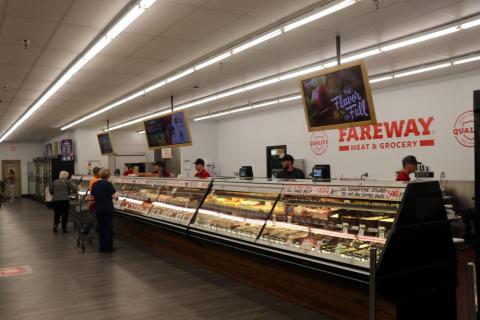
Fareway Stores Inc.
Headquarters: Boone, Iowa
Number of Stores: 133
From South Dakota to Illinois and in five other states in between, Fareway Stores is on a mission to provide the highest-quality products while treating customers like family and valuing its dedicated employees. The family-owned grocer is known for its full-service meat department, with experts who cut, prepare and package product to customers’ specifications, as well as its farm-fresh produce and top-notch customer service.
Fareway had a busy 2022 that included the opening of three Meat Market locations throughout its footprint; these feature the grocer’s signature high-quality meat and a full-service butcher counter. The year also brought Fareway a high school registered-apprenticeship program for meat cutting in Independence, Iowa, and the acquisition of the 20,000-square-foot Brick Street Market and Café near Des Moines.
After adding an e-commerce platform in 2020, the indie retailer made further tech moves last year with the addition of Venmo and PayPal as in-store payment options. Fareway has also worked with energy partners to install electric vehicle-charging stations and solar panels in key store locations, in addition to installing a 1-megawatt solar facility adjacent to its corporate campus.
Additionally, Fareway has rescued and donated more than 1.1 million pounds of food and recycled more than 400 tons of plastic shrink wrap, 12.5 tons of cardboard and 4.5 million plastic sacks. The grocer has also become a steward for smaller communities in Iowa through a partnership with the State of Iowa Economic Development Authority that allows the company to build smaller store models in communities of around 5,000 people. Further, Fareway makes monetary donations to Variety-the Children’s Charity, the Muscular Dystrophy Association, the U.S. Marine Corps Toys for Tots program and other local community initiatives.
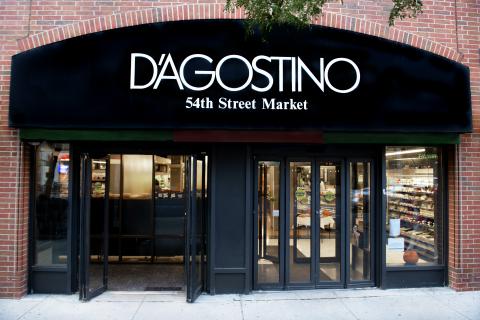
Gristedes/
D’Agostino’s
Headquarters: New York
Number of Stores: 30
The names Gristedes and D’Agostino’s are synonymous with the New York City grocery landscape, and the 132-year-old combined supermarket chain prides itself on offering a wide selection of local foods and goods that support the community it serves. At the helm of Gristedes/D’Agostino’s is Joe Parisi, a seasoned food and grocery retail professional with more than 40 years of experience in the industry.
Parisi and his team have worked hard to maintain the success of the business despite recent hurdles, and they’re adamant about the safety and security of all stores, even doubling the number of security guards in the past year.
Despite its age, the grocer is highly technically savvy and innovative, having recently refreshed its enterprise point-of-sale system in an effort to drive greater efficiencies from a speed and reporting standpoint. The company has also made significant investments in its e-commerce strategy, offering a variety of channels and methods to enable New York metro-area residents to shop with Gristedes/D’Agostino’s, such as Freshop, Uber/Cornershop and Instacart.
On the corporate responsibility side, the company and its parent, Red Apple Group, have raised millions of dollars for Tunnel to Towers, a group that helps provide mortgage-free homes to Gold Star and fallen first-responder families with young children, and that builds custom-designed smart homes for catastrophically injured veterans and first responders.
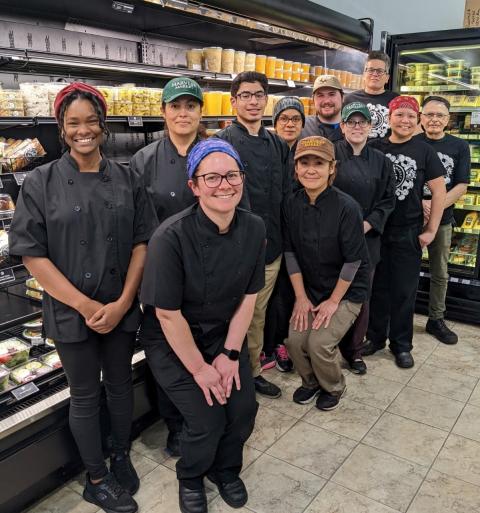
Harvest Market
Headquarters: Hockessin, Del.
Number of Stores: 1
The first thing that shoppers notice about Harvest Market is a big sign at the front of the store that reads: Your Community Grocer. This 27-year-old indie operator specializing in local, organic and specialty foods squeezes more than $9 million in annual sales out of a 6,000-square-foot storefront. The company knows that it can’t match the size, selection and buying power of the chains, but it strives for excellence in everything it does — successfully. In recognition of its efforts, Harvest Market has earned two consecutive top workplace awards from the Wilmington News Journal and Energage.
When a Wegmans Food Market opened a few miles away last October, Harvest Market worried that customers might defect. They did not. Despite predictions from a consultant that it might see as much as a 15% drop, the grocer closed out the year up 11%. According to Harvest Market, this is because it has “a staff focused on taking care of customers from the moment they walk through the door.”
Harvest Market quickly delivers on customer requests for new products and special orders. It developed a popular safety protocol during the peak of the pandemic. Harvest Market staff develops “how are the kids?” relationships with many customers, and they reward the retailer with a $55 average basket size.
Another key to the grocer’s success is its prepared food kitchen, which produces restaurant-quality offerings across categories such as soups, salads, sandwiches, sides and baked goods. The kitchen is 3-Star Green Restaurant Association (GRA) Certified, and one of only seven kitchens ranked by the GRA that has earned more than 90 points for ingredient quality and sourcing.
Harvest Market was founded in 1995 as a high-quality community grocer, a mission it’s still fulfilling to this day.
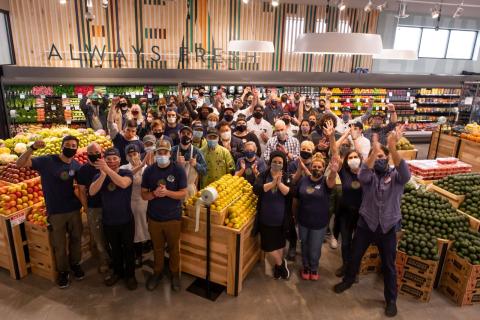
Healthy Living
Headquarters: South Burlington, Vt.
Number of Stores: 3
Founded by Katy Lesser in the 1980s and now co-owned by her two adult children, Healthy Living has always been — and remains — ahead of its time. The grocer, with locations in South Burlington and Williston, Vt., and Saratoga Springs, N.Y., was a pioneer early on by investing in ordering and inventory management technology. Lesser started the business without formal training, going up against conventional supermarkets before natural foods were mainstream.
The company’s three stores run on 100% renewable energy sources, and its cafés offer from-scratch prepared foods crafted by a renowned chef. The grocer offers a Core Shopper loyalty program that aims to teach customers that healthy food is accessible, affordable and “the right way to go.” E-mails, blog posts and more written by Healthy Living leadership further the company’s educational work, providing tasty recipes and facts about various grocery and wellness items. The retailer also has strict product standards, prohibiting foods that have added hormones, antibiotics, artificial and trans fats, high-fructose corn syrup, artificial sweeteners, bleached or bromated flour, or artificial colors, flavors and preservatives.
Last year, the retailer’s Together We Can Help philanthropy program resulted in donations totaling $91,146.56 — given directly to nonprofits helping neighbors in need. During the COVID-19 pandemic, Healthy Living showed tenacity, drive and innovation by managing to open a third location, in Williston, despite operational challenges.
Healthy Living employs 300 workers across Vermont and New York, consistently adding talent to its roster and furthering its mission of exemplary customer service and hospitality for an exceptional shopping experience. The company is also focused on nurturing a positive work culture by offering competitive pay, benefits and other opportunities for staff. In short, Healthy Living is a great place to work, shop, learn and engage with the community.
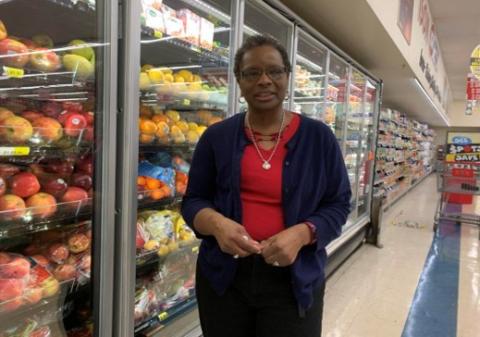
Isom IGA
Headquarters: Isom, Ky.
Number of Stores: 1
More than six months ago, Gwen Christon’s life changed forever. Her IGA supermarket, in Isom, Ky., was destroyed by storms, which sent more than 6 feet of floodwater into her store. Christon, who has worked in the store since 1973 and owned it since 1998, runs the only full-service supermarket in a 12-mile radius of that part of Appalachia, and she employs more than 20 people. As such, she is one of the largest employers in the town, part of an economically challenged region.
Before the flood, Christon had been continually investing in her store and her customers by installing self-checkout and energy-efficient cases, lights and solar power. Christon’s store was the heart of Isom, a community within a community, providing a place where people form connections and friendships, gather in good times and bad, and always feel welcomed.
So it comes as no surprise that immediately after the flood, the Isom community rallied behind her. Donations and volunteers came flooding in. The store’s parking lot became a hub for the Isom community. Christon’s team worked with World Central Kitchen and Mercy Chef Kitchen to feed hot food to 10,000 neighbors forced from their homes. People lined up for family meals every day for a month. Working with local groups, Gwen’s team also ensured that everyone would have their food needs met for Thanksgiving.
Christon’s inspiring story was featured in Progressive Grocer, on “Good Morning America” and NPR, and in other national media. Today, Christon’s new store is under construction, and she recently told NPR that she’s well on her way to planning her store’s reopening celebration on April 1.
“This is my family, and the people of Isom are my people,” Christon said in the NPR interview. “We work hard to make everyone’s life easier and more convenient for them. It’s what we do.”
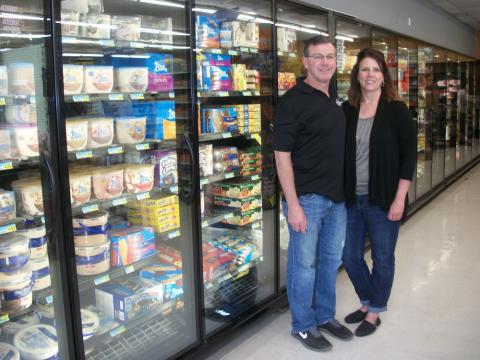
John’s Market
Headquarters: Troy, Kan.
Number of Stores: 1
John’s Market, in Troy, Kan., is the textbook definition of a hometown, family-run, rural grocery store. Troy is located about 70 miles north of Kansas City and has a population of approximately 7,500, with a median household income of $54,792. Without John’s Market, a lot of people in this community wouldn’t have access to quality groceries or quality customer service.
John’s Market is famous for helping neighbors in need. From offering special hours after a local game to provide food to athletes, to delivering necessities to a customer whose house burned down on Thanksgiving, the retailer serves its community without hesitation.
Recently, one customer received a breast cancer diagnosis. Her family tradition for Thanksgiving was making oyster salad, but she was too sick to travel, so John’s Market brought the oysters to her. The grocer also helps churches, schools and community organizations, which all depend on John’s Market for successful events. Without them, each organization would have to travel more than 20 miles one way to shop for groceries.
During the pandemic, John’s Market was the community’s “security blanket.” The retailer adjusted its business model and began offering contactless delivery, accepting phone orders and providing special shopping times for the most vulnerable, as well as adding online pizza ordering, pre-made sub sandwiches and much more.
John’s Market is also one of the few businesses in the area that hires teens and young adults. Over the years, hundreds of local teens have worked for John’s Market because the owners understand that school is a priority. A common comment from young employees is that John’s Market is flexible and understanding. The grocer will tailor schedules around band, athletics, studying and other school activities. Working at the grocery store also teaches these kids many valuable life skills — respect, friendliness, a strong work ethic and accountability, to name just a few.
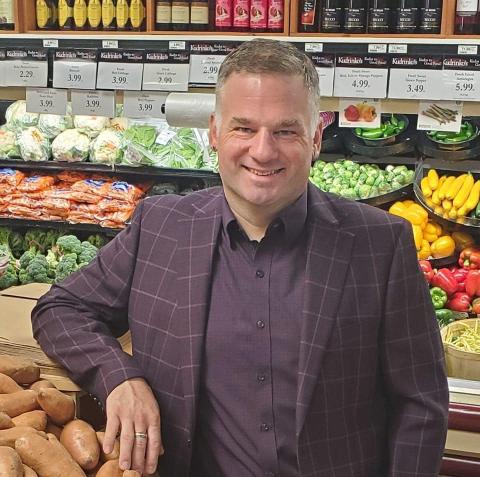
Kudrinko’s Ltd.
Headquarters: Westport, Ontario
Number of Stores: 1
Kudrinko’s owners Neil and Martha Kudrinko have always been progressive grocers: The store received recognition for its sustainability practices as one of Progressive Grocer’s Outstanding Independents in 2014.
Given the owners’ approach to business, it’s no surprise that when second-generation owner and president Neil Kudrinko decided to come out publicly as pansexual/queer in 2021, he felt a responsibility to create a safer and more inclusive space in his community. Kudrinko’s has made diversity, equity and inclusion (DEI) efforts not just a matter of policy, but also a matter of action. The store joined the Welcoming Project and was successful in getting local affirming businesses to post All Are Welcome decals on their doors as well.
When it comes to human resources programs, the small company of 30 employees added gender affirmation coverage to the health benefits offered. While health care in Canada is covered by a public single-payer system, some surgeries are considered elective and are left to the individual to pay out of pocket. Kudrinko’s recognized that gender dysphoria is experienced differently by every trans individual, so a one-size-fits- all approach wasn’t going to provide the care needed for many people.
Yet beyond its DEI efforts, Kudrinko’s support for the trans community is deeply personal. Neil Kudrinko sees it as a matter of professional development, personal growth and leadership, especially during a time when members of the queer community are threatened by harassment and legislatures that would seek to use identity as a matter of political division. Kudrinko’s doesn’t only believe that diversity, equity and inclusion are a matter of ethical business practices, it’s also committed to celebrating all people regardless of their backgrounds. Addressing inequality in government policies, working toward a more sustainable planet and building a strong community are Kudrinko’s stock in trade.
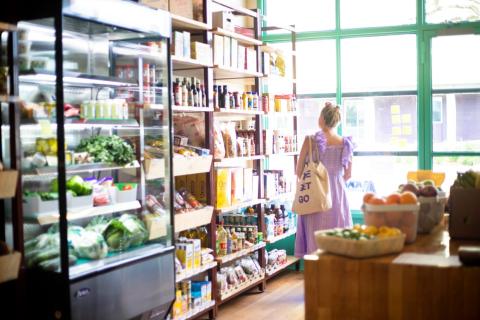
Little Red Box Grocery
Headquarters: Houston
Number of Stores: 1
Little Red Box Grocery is doing big things. Founded by H-E-B veteran and nonprofit leader Samuel Newman, the independent small-format grocer in Houston’s Second Ward aims to improve accessibility to affordable foods while engaging and empowering the community, which had been considered a food desert.
The store’s assortment includes a range of fresh food and everyday staples that meet customers’ many needs. LRB, as it calls itself, also partnered with a group called Cooking Matters to create meal kits that are quick and easy to serve for families.
The arrival of LRB in 2022 was much appreciated by community members. “Oftentimes, our customers are just coming in for one or two essential items — a loaf of bread, milk or some vegetables, and if we weren’t here, they tell us they’d either need to take two buses to get to a store or they’d just go without,” the grocer notes.
Behind the scenes, this indie is incorporating technology into its grass-roots food retailing. Last year, the business delved into the omnichannel realm through a partnership with Grocerist and launched several digital marketing initiatives. This year, LRB and Grocerist, along with tech partner Forage, will roll out online SNAP EBT, something that they believe will be a game-changer for the many customers who would prefer to go online to use their benefits instead of doing so in person.
Further, LRB is widening its reach beyond its store doors as part of its overarching mission. The grocer works with local organizations to provide food relief, including partnerships with the Urban Harvest Group, El Centro de Corazon and Arena Foundation. Through these collaborations, local residents can get benefits such as half-off SNAP EBT purchases, medically tailored offerings, expanded food access, and more.
Ultimately, it’s about connections in many forms at LRB, which asserts, “Our approach is to treat each customer like you would a friend of a friend walking into your living room.”
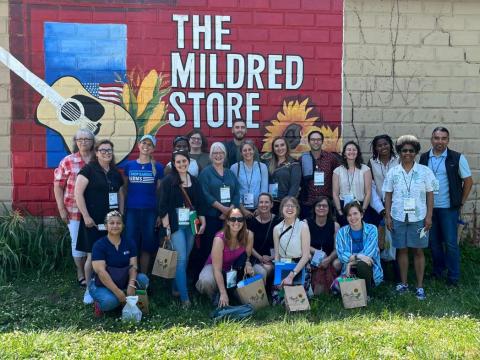
The Mildred Store
Headquarters: Mildred, Kan.
Number of Stores: 1
It’s been said that walking into the Mildred Store is like stepping into a Norman Rockwell painting. It’s partly the fact that the general store in rural Mildred, Kan., opened 107 years ago, and the store’s current assortment includes nostalgic items like retro candies and regionally made Amish canned goods. It has also remained a hub of the community, as team members regularly assemble locally famous deli sandwiches for customers who hail from Mildred and other parts of Southeast Kansas.
History is part and parcel of this indie grocer, which was founded by Lucille and Charlie Brown and was known as Charlie Brown’s for more than nine decades before the store was bought by the new proprietors, Regena and Loren Lance. The Lances, who changed the store name to simply the Mildred Store, report that they have continued many traditions, but are also forging new ones to meet the needs of today’s shoppers.
For example, stemming from Loren Lance’s interest in music, the Mildred Store now hosts a monthly music night in one of its spacious back rooms. The free event draws crowds of up to 200 and drives revenue as well as community engagement.
In addition to these events, the grocers frequently open up the site for local festivals, family gatherings, fundraisers and even car shows. They offer a variety of made-to-order party trays for these and other occasions, including platters with meats, cheeses, vegetables, cookies and candies. Recently, the Lances opened an RV park next door as another way to generate income for the business and interest in the store.
The grocers have also worked creatively on the supply side, especially during the pandemic. At a time when restaurants in the area were largely closed, they turned to foodservice suppliers to provide them with bulk items that could be repackaged and sold to shoppers who still felt comfortable shopping at their hometown grocer. Further, in the e-commerce era, the Mildred Store has added delivery services at no charge.
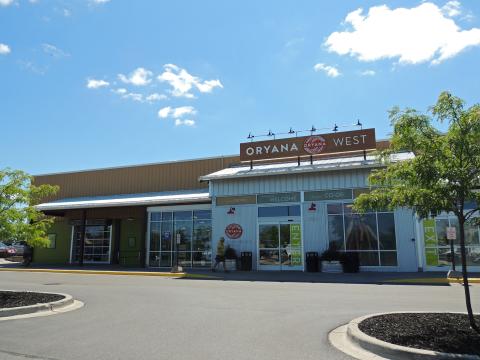
Oryana Community
Cooperative
Headquarters: Traverse City, Mich.
Number of Stores: 2
Starting with its founding as a buying club 50 years ago, this cooperative and natural and organic retailer in Traverse City, Mich., has striven to follow a socially driven business model. Beyond supporting local food systems and working with nonprofit groups to boost food security and access, Oryana Community Cooperative has transformed its area in other important ways.
Case in point: The consumer-owned co-op was able to maintain its own business and essentially save another one during the recent trying times of the pandemic. CEO and General Manager Jim Nance led efforts to acquire a struggling competing business in the Grand Traverse area, which eventually led to the opening of Oryana West. The co-op helped preserve 62 jobs at the acquired business and, along the way, more than doubled its sales revenue from 2019 to 2022. What some might have seen as a risk turned out to be a choice that spurred growth and positively affected the area.
Today, the two-store co-op governed by Nance and an elected nine-member board has a base of more than 10,600 member-owners and is a $32 million operation. Oryana Community Cooperative received the 2022 Cooperative Excellence award from the local chamber of commerce for its achievements and local economic and community contributions.
Adhering to the values that have served it well since it was formed by volunteers in 1973 is what sets this co-op apart, according to its leader.
“We truly believe that all people have a right to high-quality food, and all are welcome in the co-op,” says Nance. “Recognition lets us know that the efforts of our forebears, staff and boards — both past and present — and the support of our owners and community have made a difference, and it motivates us to keep working hard, to be truly inclusive [and to] care for future generations of people and families in our community.”
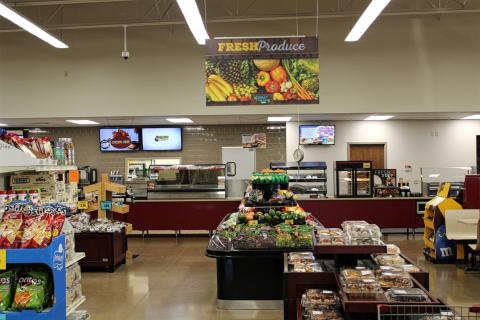
Rademacher Cos.
Headquarters: Andover, Minn.
Number of Stores: 20
As with many independent grocers, it’s a family affair at Rademacher Cos., launched in 1976 and based in Andover, Minn. The Rademacher family manages around 20 family-owned stores in the central part of the state.
After running successful superette convenience stores and G-Will liquor stores (short for Gee Willickers) for decades, the Rademachers went into the full-scale grocery business in 2022. They quickly got to work upon acquiring a former Food Price location in the town of Becker, Minn., updating the parking lot, sprucing up the store exterior and entrance of the building, and installing new lighting. They also invested in technology, adding self-checkout areas and an in-store point-of-sale system, and staffed up the store with new hires.
Working with distribution partner SpartanNash, of Grand Rapids, Mich., the owners completed a full store reset with an expanded assortment of grocery items, deli offerings and fresh produce, among other products. They also added a beverage bar and a rotating series of weekly specials.
Rademacher Cos. expanded further into the Becker community by opening a new Bill’s Superette c-store at the site of a former Deli Plus/Shell station.
The new Bill’s Family Foods and the latest Bill’s Superette continue the company’s focus on serving customers promptly in a personal and sincere way, something that they perfected in their other retail enterprises that include car washes and fuel and propane sales. As the grocer’s Outstanding Independents submission puts it, “The main key to operating a successful store is simply stated in the company’s motto: ‘Cleanliness and Friendliness!’”
While the company has widened its retail presence, Rademacher Cos. has evolved as well. The next generation of the family business started by Karen and Bill Rademacher has taken a new leadership role, with their son, Grant Rademacher, now president.
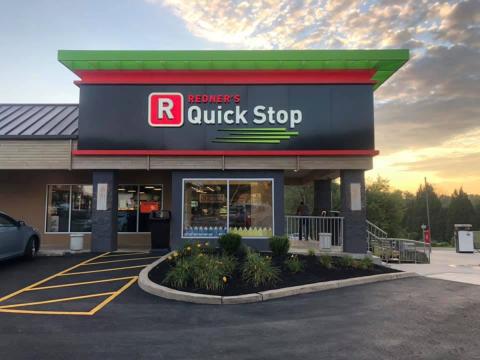
Redner’s Markets Inc.
Headquarters: Reading, Pa.
Number of Stores: 64
Sensing and seizing opportunities, the family that operates Redner’s Markets Inc. didn’t wait for the volatile times of the COVID-19 crisis, supply chain snafus and high inflation to settle. Instead, the grocers took all kinds of actions to grow their independent business and bring it into the next merchandising era.
“If the global pandemic brought anything to light, it was that for any business to survive and show continued growth and success, sticking to one’s core values is a must,” the company’s nominator asserts.
The leaders didn’t think small, either. This employee-owned indie expanded its new concept, Redner’s Fresh Market, focusing on full-service deli, bakery, meat, seafood and chef-prepared meal solutions. Having unveiled the first Fresh Market store, in Wyomissing, Pa., in 2019, the company recently opened its fourth Redner’s Fresh Market, in Lewes, Del. Unveiled in November 2022, the 49,000-square-foot store also makes its own fresh popcorn and pressed juice, and offers convenient self-checkout along with curbside pickup and delivery options via DoorDash and Shipt.
The Reading, Pa.-based retailer also rebranded its convenience store division, dubbing it Redner’s Quick Stops. From an operations standpoint, Redner’s invested in a front- and back-end point-of-sale solution to bring the stores into the future.
Now in its third generation of leadership under Ryan, Gary M. and Richard Redner, and with 64 locations, the company begun in 1970 by Mary and Earl Redner continues its focus on valuing its 5,000-plus associates. Among other measures, Redner’s has increased wages, recognizing the commitment of its workers during the pandemic. Community support remains a priority, too, as the grocer partners with nonprofit groups and provides charitable donations. At the end of 2022, Redner’s revealed that it’s providing more than 200,000 meals to area food banks through a partnership with such brands as Minute Rice and the Original Louisiana Hot Sauce.
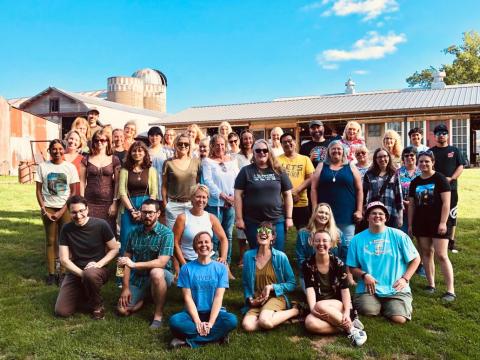
River Market Community Co-op
Headquarters: Stillwater, Minn.
Number of Stores: 1
Not only is River Market Community Co-op owned by local residents, it’s also active, integral and vital to its surrounding area.
In 2022, River Market created its very own grant fund to support and strengthen the local foodshed: the Growers, Grazers, Makers and Bakers Grant Program. This grant program weaves together local food and community, two essential ingredients of the fabric of the co-op since it was founded 45 years ago by a small group of volunteers. Local farmers, food producers and processors are eligible to apply for a grant through the program. Funds may be used for the purchase of machinery, construction or other resources necessary for increasing productivity, scaling offerings, improving efficiency or growing the applicant’s business.
Contributions to the fund come primarily from shoppers rounding up their purchases to the nearest whole dollar. This program generates more than $38,000 each year, entirely from the generosity of the small grocer’s shoppers.
In an example of a unique event in its community, the World Snow Sculpting Championship takes place in January, just steps from River Market. Sculptors come from around the world and spend three days chiseling, shoveling and sculpting giant blocks of snow. The independent store is a proud sponsor of this event, with its deli providing lunches for each team of sculptors. What’s more, General Manager Sara Morrison is a member of the steering committee, helping plan and promote the event as well as working on logistics.
The rich symbiosis between the co-op and the surrounding community doesn’t stop there. The grocery store also educates its community by offering virtual classes. Topics include “Everything You Need to Know About Recycling,” “How to Grow Microgreens” and “The Art of Beekeeping.” Overall, River Market is an inspiring example of an entity owned by and serving the needs of those who live, work and play in the area.

Rosauers Supermarkets
Headquarters: Spokane, Wash.
Number of Stores: 23
What sets Rosauers Supermarkets apart from competitors is how it strives to serve its customers, communities and employees. When customers shop its stores, they encounter a neighborhood market feel with a full-service bakery, a deli, and produce, floral and meat departments, alongside offerings of natural, organic, conventional and local products. They also discover employees who are available not only to tell them where a product is, but also to walk them to the item or direct them to an associate to place a special order — services they won’t find at many competitors.
It’s things like Rosauers’ 30-year relationship with the local crisis nursery, its 20-plus-year affiliation with the local food bank distributor, its 20-plus-year association with the local United Way, its work with the American Heart Association and its support of hundreds of local nonprofits across the four states in which it operates that show customers the heart of the company. When customers shop Rosauers’ stores, they know that they support the local community while receiving exceptional service.
Rosauers is also known for being at the forefront of innovation. As a founding Rosie e-commerce retailer, Rosauers paved the way for other independent grocers in its area to see Rosie’s potential in improving online offerings. Rosauers was also the first independent retailer in its region to partner with Upside and Instacart.
During the pandemic, Rosauers didn’t just use its relationship with Rosie to expand the number of online orders at its six established stores — within three weeks’ time, it had added 13 additional store locations to serve customers during COVID’s twists and turns. When Rosauers saw that its local food bank distributor was struggling to meet the increased demand of so many people being out of work, the grocer took further steps to collect donations from customers, adding a percentage matched by the company, and used gift cards to ensure that those in need had access to food.
Additionally, for the first time ever, Rosauers started hiring temporary employees to help those out of work provide for their families, and it increased its employee discount. These actions further demonstrate the grocer’s drive to serve the community and keep everyone safe, fed and employed.
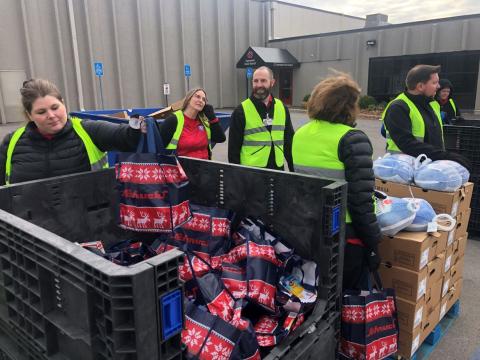
Schnuck Markets Inc.
Headquarters: St. Louis
Number of Stores: 114
Schnucks is a third- and fourth-generation family-owned grocery retailer committed to nourishing people’s lives. It’s known for partnering with nonprofit organizations aligned with the company’s community pillars of fighting hunger and food insecurity.
Its most robust community partnership is with Operation Food Search (OFS). Since the inception of the OFS partnership, Schnucks has donated more than $180 million worth of food to those in need. By teaming with OFS and its 330-member nonprofit agencies, Schnucks enables an average of 200,000 people per month to receive food assistance.
Then there’s Schnucks’ decades-long tradition of hosting an annual teammate United Way campaign. Through teammate pledges, community fundraisers and company donations, the 2022 campaign raised $2.239 million to support United Way and its mission to help those most in need.
Meanwhile, in 2021, Schnucks launched a $1 million partnership with the Urban League of Metropolitan St. Louis (ULSTL). Schnucks customers can Round Up at the Register to support the nonprofit’s Save Our Sons initiative. The relationship includes Schnucks’ continuing support of ULSTL’s annual St. Louis Urban Expo and donations of food and other products for the organization’s annual holiday meal campaign. It also includes the grocer’s sponsorship of various drive-thru emergency relief distributions, both through product donation and Schnucks volunteers, as well as ULSTL’s use of Schnucks’ warehouse facility for the food distribution events.
The grocer is also focused on community health. Recognizing the disparity in breast cancer survival rates between white and African-American women, Schnucks, in partnership with the Pink Ribbon Girls and ULSTL, created Treasure Your Chest to incentivize residents of 21 underserved ZIP codes in the St. Louis area to get mammograms. Participants received a $50 Schnucks gift card along with other resources to promote healthy living and eating choices.
There’s also Schnucks’ nearly 40-year-partnership with The Salvation Army (TSA). Each holiday season, Schnucks customers can Round Up at the Register to support the TSA Tree of Lights campaign or give to the TSA bell ringers in front of Schnucks stores. TSA of Greater St. Louis recently recognized Schnucks with the Doing the Most Good award, highlighting the grocer’s commitment to serving the community and to supporting TSA.
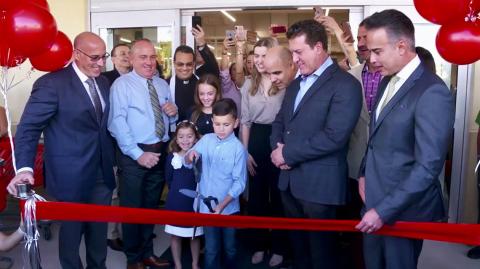
Sedano’s Supermarket
Headquarters: Hialeah, Fla.
Number of Stores: 33
Sedano’s Supermarket began as a neighborhood grocery store founded Cuban exile Armando Guerra in 1962. Guerra brought in Manuel Herrán, and together they grew the banner into the largest Hispanic-owned grocery retailer in the United States. Today, Sedano’s is still operated by the second and third generations of the Guerra and Herrán families.
With 33 stores across South Florida and Orlando, Sedano’s has always been a cultural hub for its local community. It is committed to serving immigrants and providing products that connect customers to their home countries. Besides its diverse variety of products, Sedano’s offers authentic Hispanic prepared dishes and bakery items ideal for the grab-and-go crowd.
“Customers feel more at home in the environment we provide at the stores,” says Produce Supervisor Ricardo Carbonell, “whether it be the cafecito and the pastelito de guayaba in the cafeteria, to the arroz con frijoles at the hot bar they can have for lunch.”
Sedano’s has also been a huge supporter of its community since its inception by sponsoring local causes. It provides relief to thousands of families each year, especially during its Season of Giving campaign during the holidays. For instance, the grocer has been part of the Camacol Annual Holiday basket drive for 20-plus years.
“Prioritizing community involvement is what makes Sedano’s special,” says Supervisor Pedro Mesa. “We celebrate with the community in good times and [we’re] there to support them during challenging times.”
Meanwhile, as part of its Sedano’s Retail Media Network, the Hispanic independent grocer released the first issue of its bilingual Nuestra Sazón (Our Flavors) magazine in November 2021. Each issue of the print and online publication celebrates the richness of Latin cuisine and culture through entertaining stories and comida criolla recipes that customers can make at home using ingredients from featured brands.
“When our customers are missing their home country or just simply Grandma’s cooking, we want them to think of us as the place where they can go to find everything they need for that meal that will transport them back,” adds Mesa.
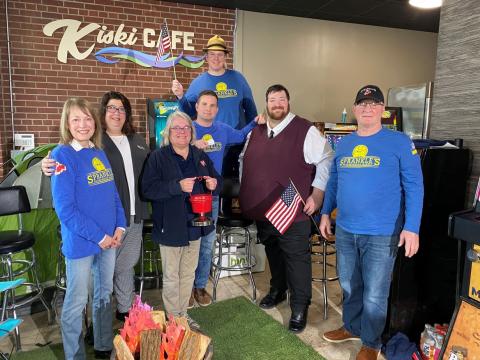
Sprankle’s Neighborhood Market
Headquarters: Leechburg, Pa.
Number of Stores: 3
Sprankle’s has elevated itself past selling groceries — the grocer has become a community hub and a popular destination. Since its opening in July 2022, Sprankle’s Saxonburg, Pa., store has continued the indie’s commitment to offering consistent standards, fair pricing and an environment where something fun is always happening.
For example, one surprising store feature is a full Lego section, popular with young and old customers alike. Owner Doug Sprankle creates in-store events using the colorful plastic building blocks, including full Lego races in the grocery aisles, which has brought more young families to shop at the store.
Another popular event that drives traffic is the Pre-Mingle celebration that supports Saxonburg’s monthly Mingle-on-Main events, giving local craft vendors a chance to sell their wares and offering competitions for kids.
Then there’s Sprankle’s reputation for quality meat, freshly cut on the premises. A dry-aged steak vault enables customers to watch their products age, a high-end experience found only at Sprankle’s. Customers can also enjoy the Saxonburg store’s brewery bar or dine outside on the patio.
During the pandemic, Sprankle’s started to incorporate local food businesses, including a bakery, a burrito shop and sushi, to help struggling businesses compensate for lost volume when they couldn’t open. Sprankle actively promotes them as part of his marketing strategy.
Creating a culture at Sprankle’s that is broadly community-based and woven into everything it does sets this store apart. Employees, known as crew members, are the difference-makers, giving the store an edge that translates to a more positive customer experience. Sprankle pays well and provides a quality health insurance program, bonuses and other benefits. “Focusing your efforts on your community starts with taking care of your crew and treating them with the same respect you do your community,” he says.
Additionally, Sprankle participates in MDI’s NextGen program, which empowers future leaders in the grocery industry by teaching business fundamentals and cutting-edge trends. Focusing on his development, he ensures that Sprankle’s will remain a fixture in the community well into the future.


